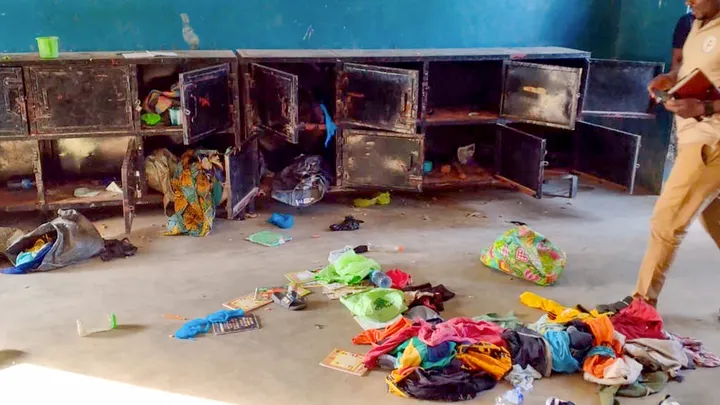ABUJA — The number of children abducted in the devastating attack on St. Mary’s Catholic School in Niger State has risen to more than 300, according to updated figures released by the Christian Association of Nigeria (CAN). The organization reported that a final headcount confirmed 303 students and 12 teachers were seized during the early-morning raid on the secluded Papiri community, marking one of the largest mass kidnappings the country has witnessed in recent years.
The victims, aged between 10 and 18, include both boys and girls. Authorities say the initial confusion surrounding the attack—combined with students fleeing in multiple directions—made early estimates difficult. CAN officials noted that 88 students who managed to escape during the assault were later recaptured by the gunmen, a detail that underscores both the scale and organization of the attack.
Witnesses reported that armed men stormed the school compound just after dawn, overwhelming local security guards and forcing staff and students into the surrounding forest. The attackers, riding on motorcycles and armed with rifles, reportedly split into groups as they moved, making it harder for security forces to track their movements.
No group has yet claimed responsibility for the mass abduction. However, security analysts note that such incidents are frequently carried out by criminal gangs operating in northwestern and north-central Nigeria, where school kidnappings for ransom have become a lucrative enterprise. Authorities have deployed specialized tactical units, supported by local vigilante groups and hunters familiar with the terrain, in an effort to locate the captives.
Niger State Governor Umar Bago responded by ordering an indefinite shutdown of all schools across the state. “The safety of our children is paramount,” he said, adding that the government would “not allow academic activities to continue under such an atmosphere of uncertainty.” The abrupt closures have left thousands of families scrambling for answers, with many fearful that their communities could be targeted next.
Compounding the sense of national shock, the attack came just days after a separate kidnapping incident in Kebbi State, where 25 schoolgirls were taken from a Government Girls Secondary School. The back-to-back abductions have intensified criticism of the government’s security strategy, with religious leaders, parents’ associations, and civil society groups calling for urgent reforms.
CAN also disputed government claims that St. Mary’s Catholic School had been previously instructed to close due to security threats. Church officials insisted they received no such notice and argued that the state’s failure to protect vulnerable communities has contributed directly to the rising wave of student abductions.
Security experts warn that the Nigerian education system remains dangerously exposed. Only a fraction of schools in high-risk areas reportedly have basic protective measures such as perimeter fencing, alarm systems, or trained security personnel. In regions where armed groups regularly raid villages, roads, and farms, schools have increasingly become soft targets.
The abduction has revived painful memories of past tragedies, including the 2014 kidnapping of the Chibok schoolgirls. For many families in Papiri, the fear is not only for whether their children will return, but when—an uncertainty that has become all too familiar across northern Nigeria.
